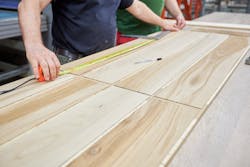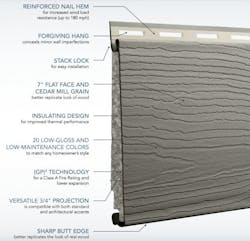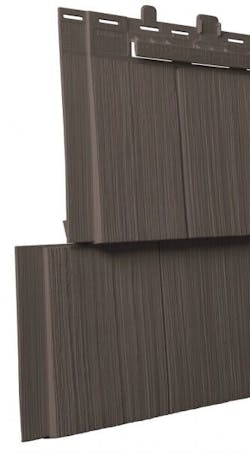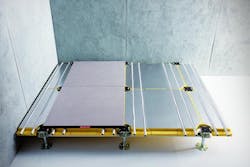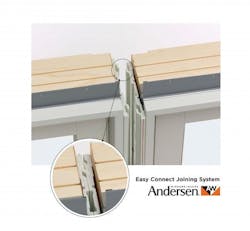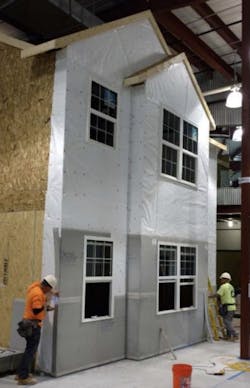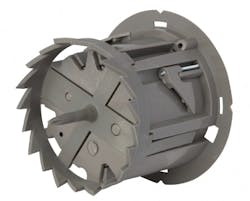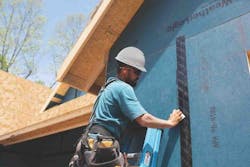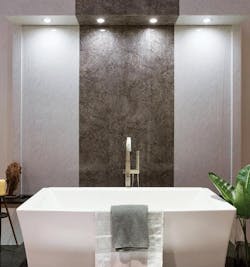8 Products to Help Cut Labor Need and Cost
Ten years ago, labor wasn’t really a concern in residential construction, at least not for much of the industry. Only 13% of builders at the time (2011) considered the cost and availability of labor an “important concern,” according to data from the National Association of Home Builders (NAHB). Yet, today, and really since 2016, it’s residential construction’s preeminent challenge.
There’s been and remains efforts to attract and develop talent to and in construction, and specifically residential construction. The Home Depot Foundation (HDF) in 2018, for instance, donated $50 million to train “20,000 skilled workers over the next 10 years.” And in 2020, the National Housing Endowment, NAHB’s philanthropic arm, donated a further $200,000 to the effort.
Wages have also become more appealing. In 2019, when NAHB published an analysis of the Bureau of Labor Statistics Occupational Employment Statistics Survey, it was found that while national median wages had risen year over year by 3%, construction wages at-large had increased 3.7%. Furthermore, certain occupations, namely those in high demand like stonemasons (7% increase), roofers (5.6% increase), and brick masons (6% increase), experienced more considerable increases.
Still, despite donations and raises, the struggle of filling job openings persists. Nearly 75% of builders in 2020 expected to face difficulties securing and affording labor this year, according to NAHB.
As of May 2021, there were 299,000 unfilled construction jobs.
It’s because of the industry’s enduring labor shortage that those operating within the construction space have been forced to innovate around it. One iteration of that innovation has been labor-reducing (and as a result often cost-reducing) products—of which there are countless examples.
From across the residential construction spectrum, and in an effort to give pros a sense of what’s available, we’ve picked out a few products that promise improved efficiency, sometimes calculated in minutes saved and other times in days.
ASCEND Composite Cladding System - Alside
The material’s easy install is a result of its light weight, self-aligning stack lock, and because it requires no sealing, touching up, joint flashing or caulking, according to the company.
Claimed Alside further, “ASCEND provides the potential for at least a ten percent lower total install cost.”
Cedar Impressions siding - CertainTeed
The new double course 7-inch 3G Straight Edge Perfection Shingles and Cedar Impressions accent panels are reported to cover more area and require fewer fasteners than single course siding, therefore requiring fewer installers. CertainTeed further claims that features like the panels’ “continuous lock,” “engineered side tabs with lead-in,” “hammer assist pades,” ability to “prevent hard nailing,” and “hidden drainage holes” (among other advantages) also help in reducing labor time and costs.
Diffuse - Nesite
Diffuse is a radiant flooring system from Nesite made up of modular, removable finishing panels that is unique both because it’s raised and because it can be installed without cement screed.The company says that while a typical radiant flooring system may take up to four to six weeks, Diffuse can be installed in about one week.
READ MORE: Kitchen Products and Features Buyers Actually Want in 2021
Easy Connect Joining System - Andersen Windows & Doors
In a 2018 survey, Andersen effectively substantiated its claims, finding among 156 builders/general contractors that a large, pre-assembled window combination unit (i.e., the Easy Connect Joining System) compared to four smaller, individually installed units cut the number of installers required by half.
PermaBase Cement Board - National Gypsum
The manufacturer includes a cost savings calculator on its site.
SmartBox Shark Tooth - Southwire
WeatherLogic - LP Structural Solutions
“The product integrates sheathing and a water-resistant barrier for moisture management,” LP explains. Typically, a builder or remodeler would need to install the sheathing first followed by the housewrap. The company further claims that “the installation and clean up of this solution can save time and labor.”
Wetwall - Wilsonart
“It works on a tongue-and-groove system—it locks very tightly,” explained Michael Maynard, product manager for Wetwall. “It’s impervious to water.”
Regarding installation, as a light, thin product, Wetwall can be placed over both fiberboard and existing tile—which saves on labor hours, claims the company.
Said Maynard, “you could install it in two and a half hours.”
